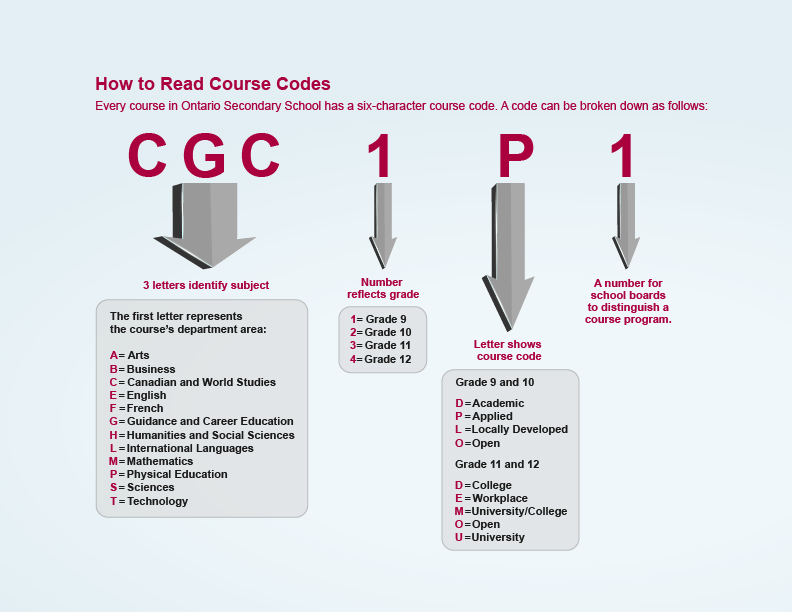As students choose courses throughout high school, they must ensure they have a good understanding of the types of courses available and which are required for their post-secondary pathway. To ensure they make informed choices, students are encouraged to:
- consider their strengths and interests
- consider learning skills and work habits
- seek the recommendations of their teachers
- consider their pathway
- seek help from their Guidance Counsellor
The DCDSB Pathways to Student Success website can help with the planning process.
Make Changes to Current Courses
Students can make changes to their timetables in a current or future semester based on the following guidelines:
- Grade 9 and 10 students cannot make changes to their elective courses.
- Grade 11 and 12 students may make changes to their courses to meet the requirements for post-secondary application.
- All students may make changes to their course levels.
All changes are subject to availability and approval and must be made within the deadlines set out in the school calendar.
To Request a Course or Level Change:
- Send an Edsby message to your Guidance Counsellor requesting a change.
- Your Counsellor will make sure the request is possible and send the request form to a parent/guardian.
- Your parent/guardian must submit the form for approval.
- Once approved, your Counsellor will make the change and let you know once it has been done. **You MUST continue to attend class until you are notified that the change has been made.
Course Selection
Course selection takes place each year in February for the following school year. Click here to access resources for the course selection process.
Students must submit their course selection on time to have an equal chance at getting the courses they selected. It is important to make informed choices based on strengths, interests, learning skills, and post-secondary pathway. Changing courses after the course selection process may not be possible.
Understanding Course Levels
The selection of course level should be subject-specific; students may choose a combination of levels and still have access to all possible post-secondary pathways depending on prerequisite. For example, a student may choose academic/university English and applied/college Math.
The level of course selected depends on many factors, including: attitude/motivation, organizational skills, homework skills, independence/ initiative, and provincial standard (Level 3 or 4). Students who have learning styles suited to theoretical, abstract thinking, who are self-motivated and require less teacher direction should choose academic/university courses. Students who benefit from additional time spent on individual topics, with learning styles suited to hands-on, practical learning should choose applied/college courses.
| De-Streamed (W) Courses |
| Courses in which students are not "streamed" into academic, nor applied. A de-streamed course will prepare students for the apprenticeship, college, university, and workplace pathways. |
| Open (O) Courses |
|
All students at all levels of academic abilities and learning needs and strengths can take an open level course. Expectations are designed to be appropriate for all students. |
| Locally Developed (L) and Workplace (E) Courses |
|
| Applied (P) and College (C) Courses |
|
| University/College (M) Courses |
|
| Academic (D) and University (U) Courses |
|
| Advanced Placement (AP) Courses |
|
Understanding Course Codes
All secondary school courses are identified with a six character code. The first five characters are consistent throughout the province of Ontario. The diagram below explains the what the codes mean.

Academic Recognition
Students in Grades 9, 10, and 11 are eligible for Honour Roll if they have a minimum 80.0% in all of their day school courses. Summer school and night school courses do not qualify.
Students in Grade 12 are eligible for Ontario Scholar if they have a minimum 80.0% in their top 6 Grade 12 courses.
